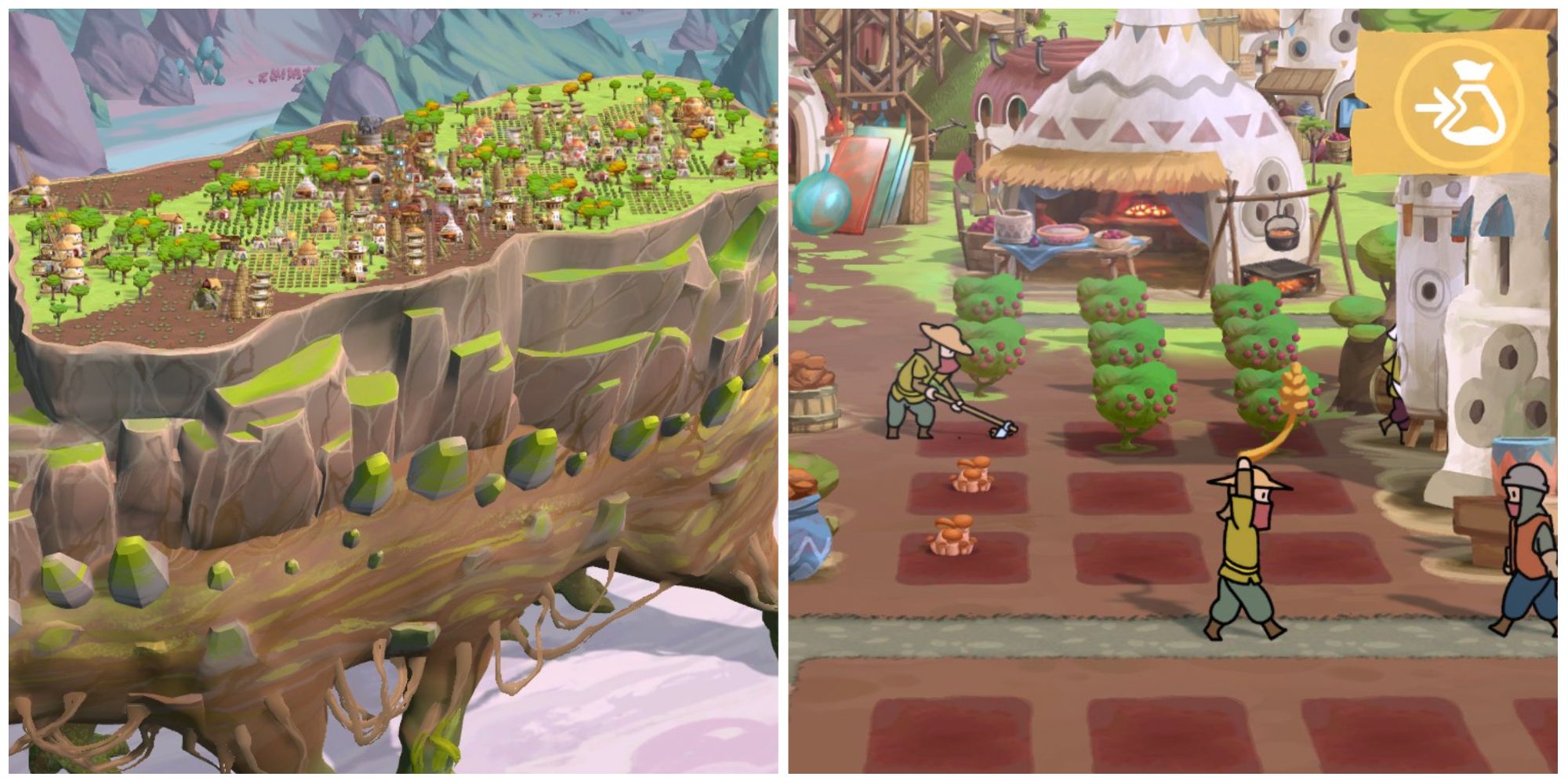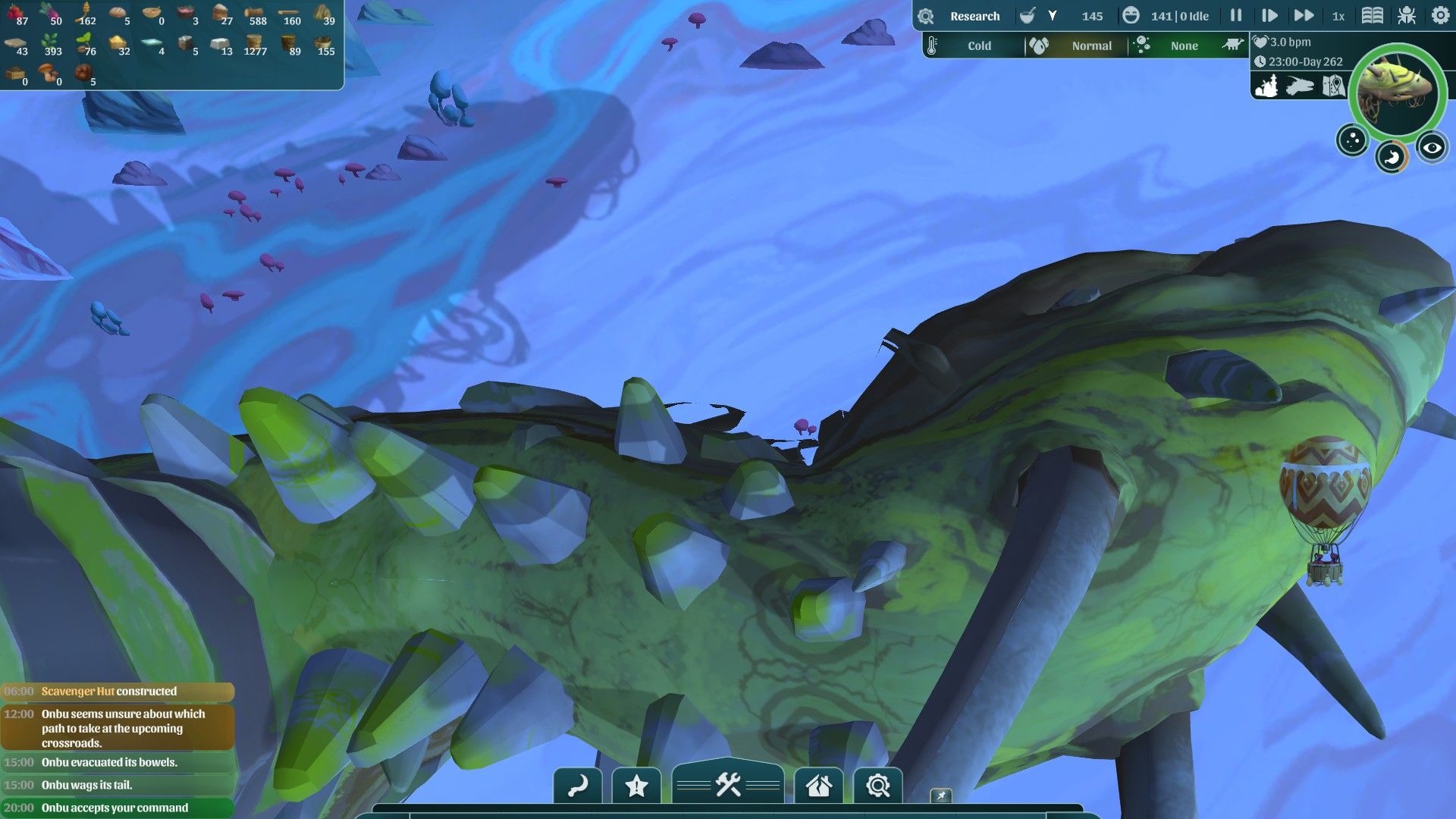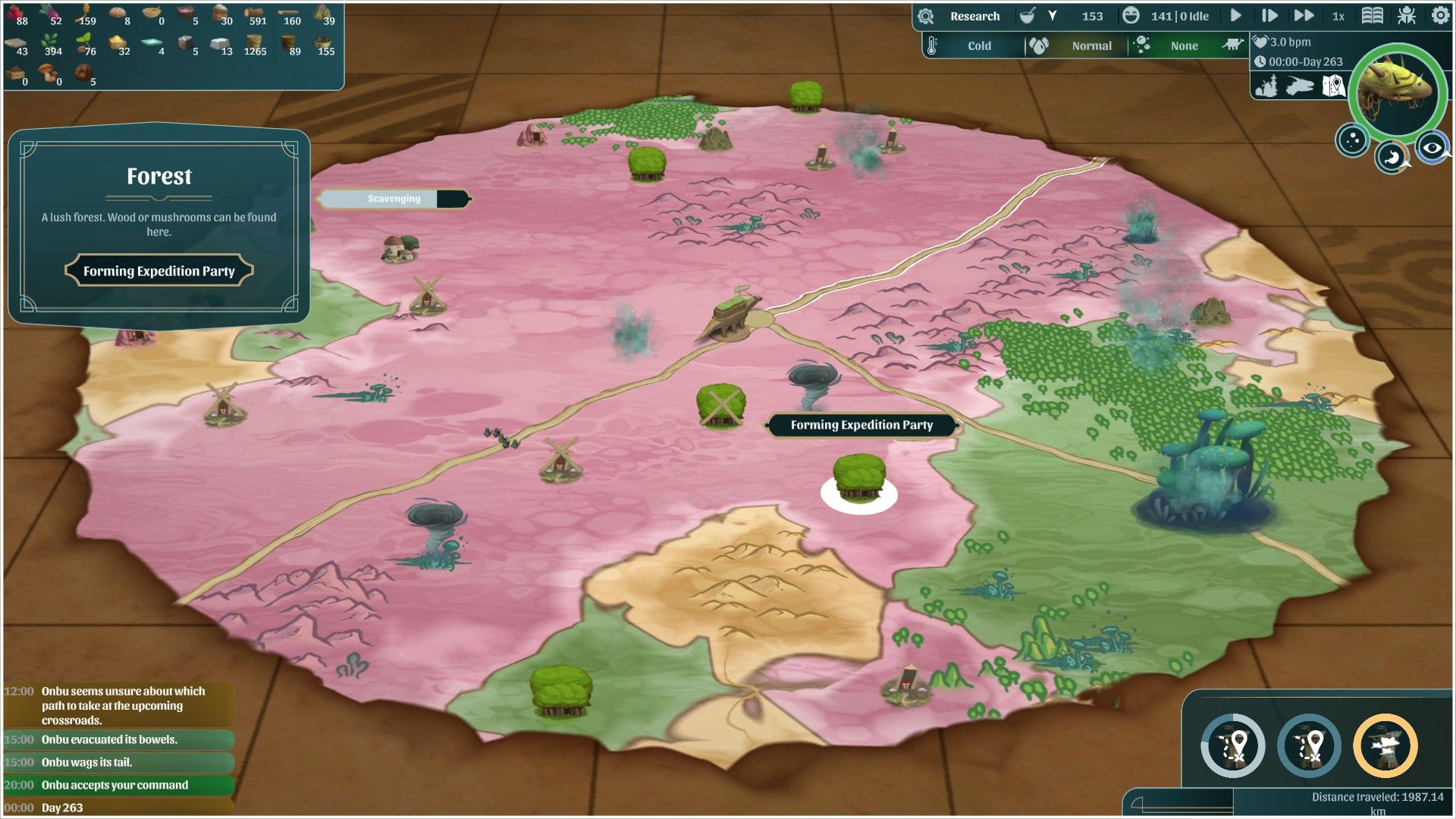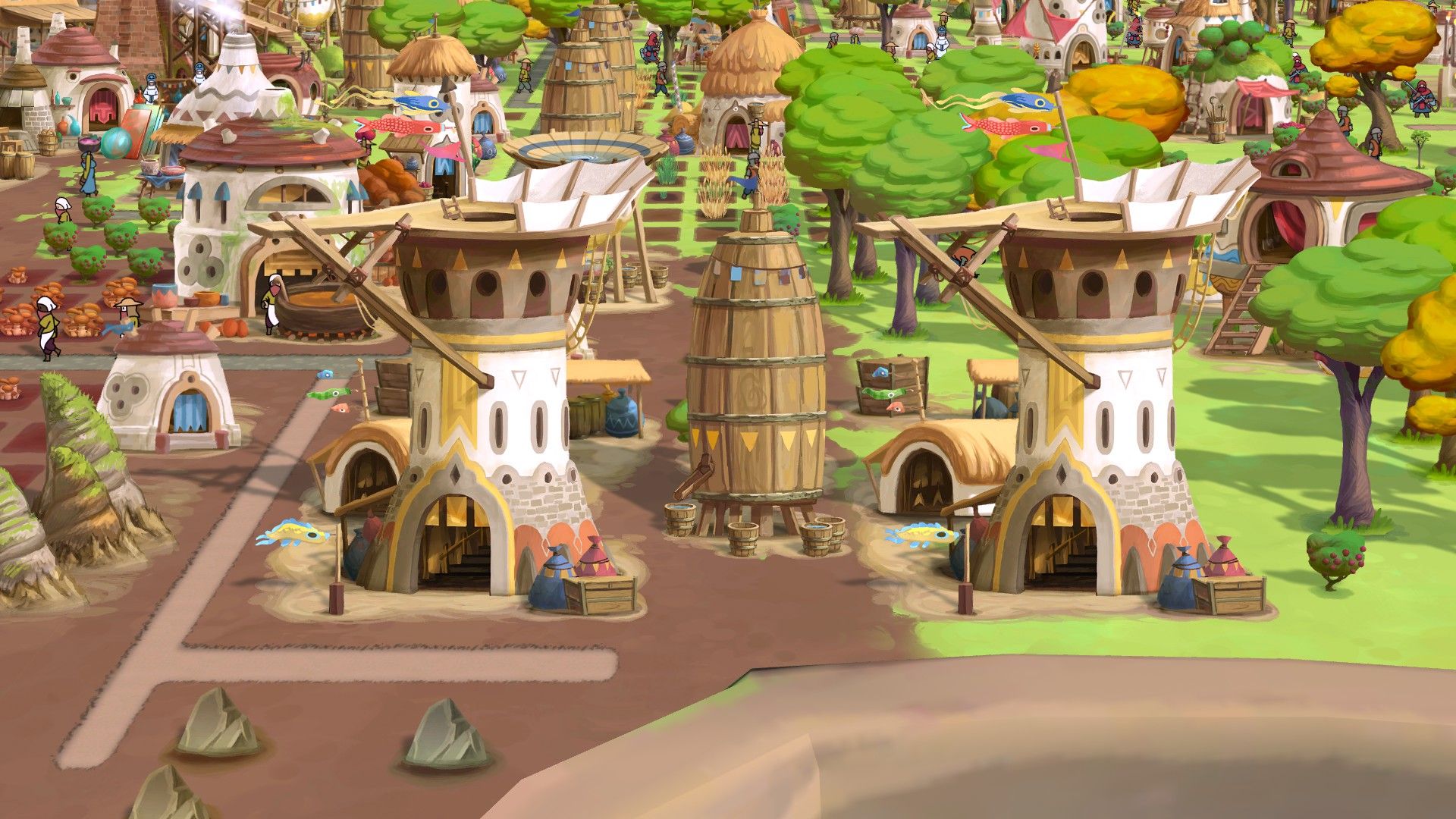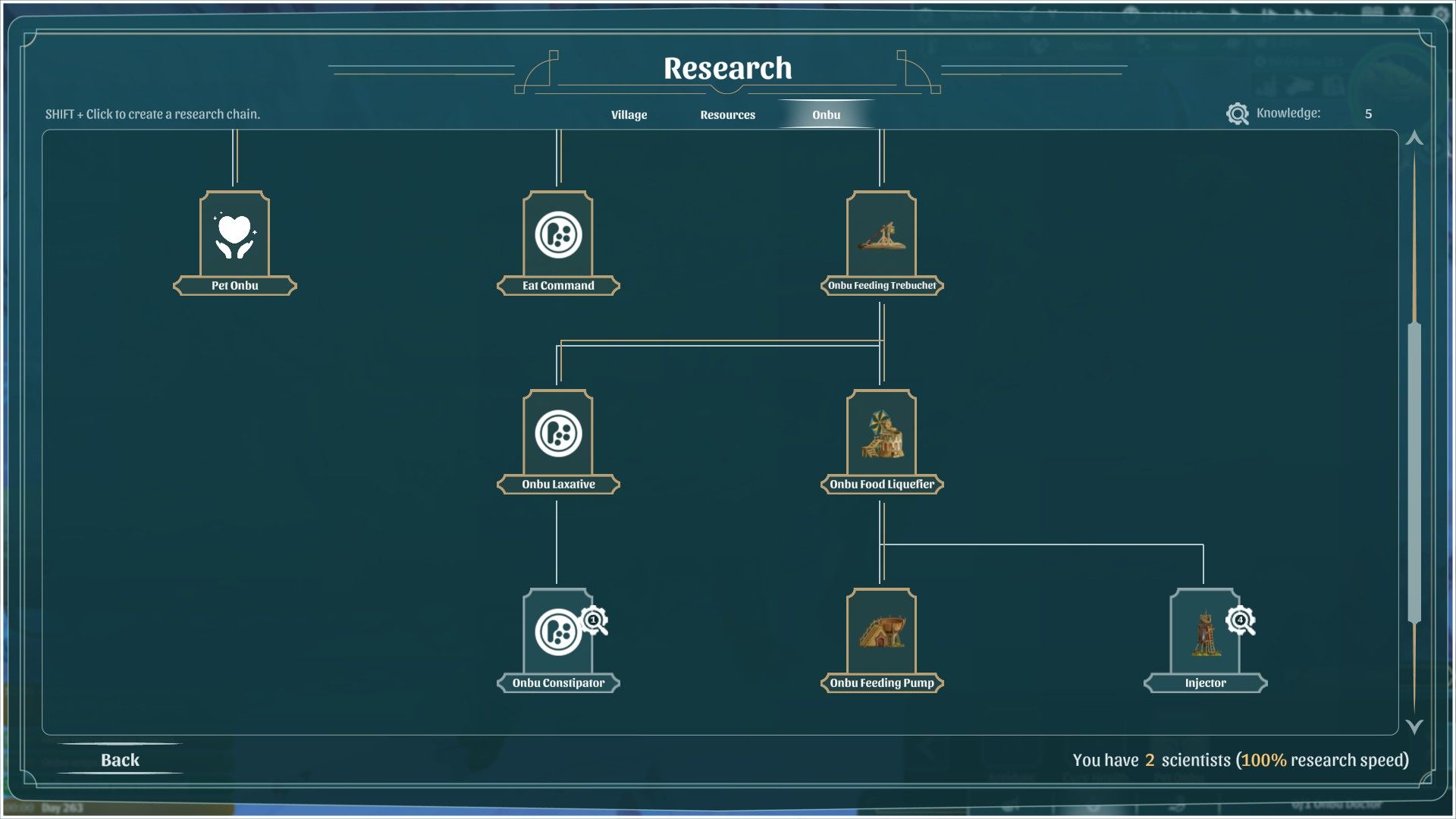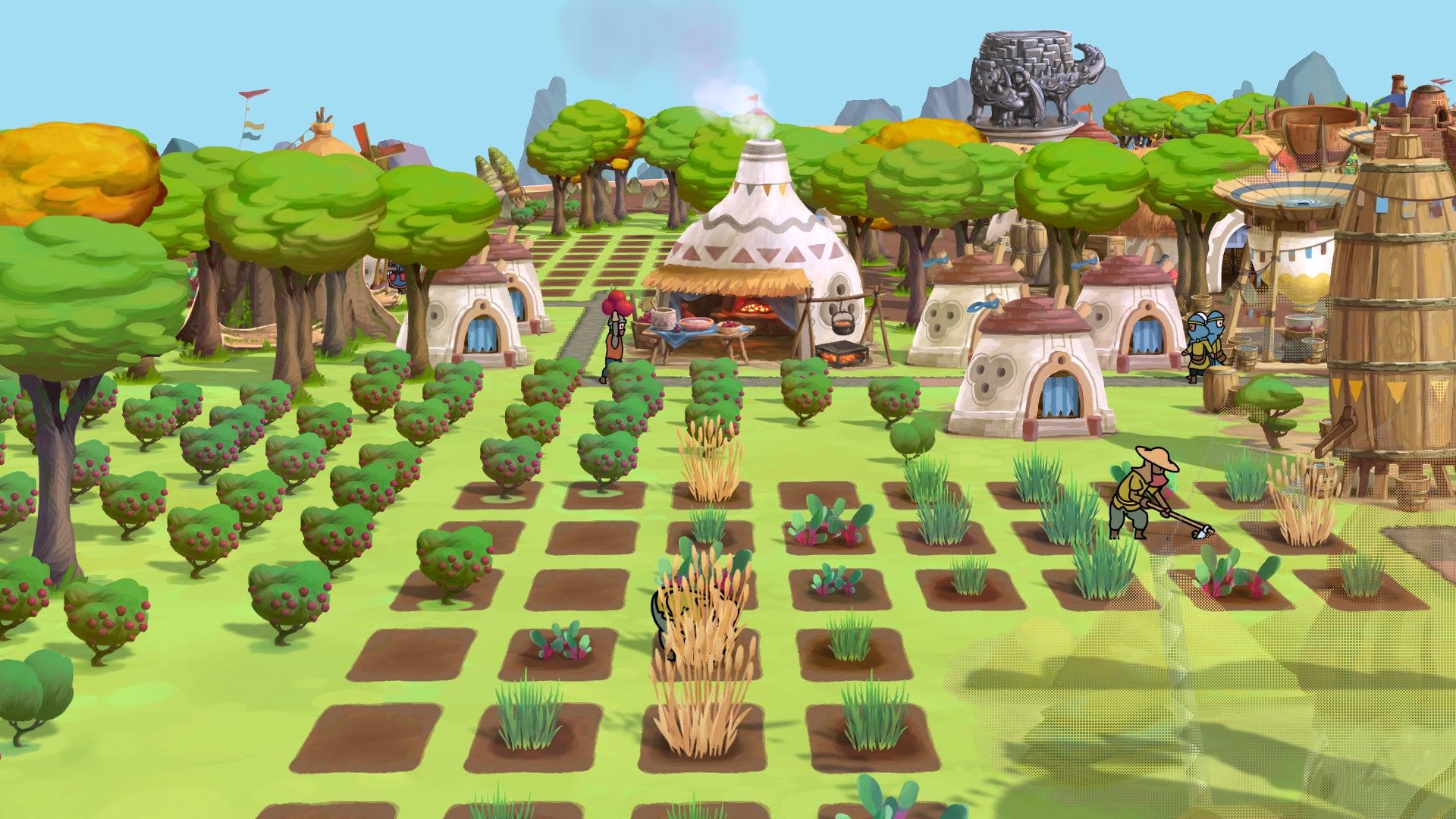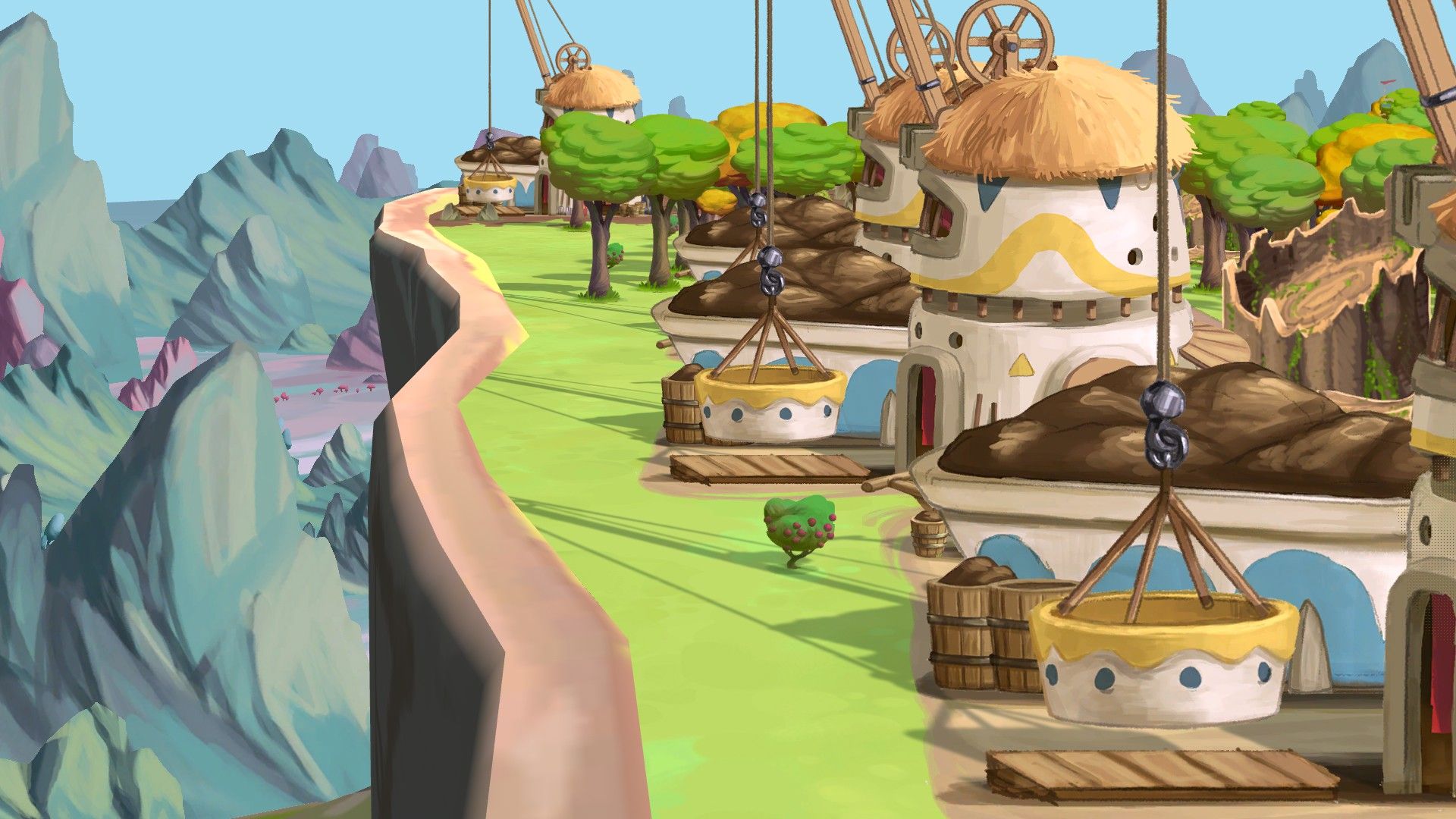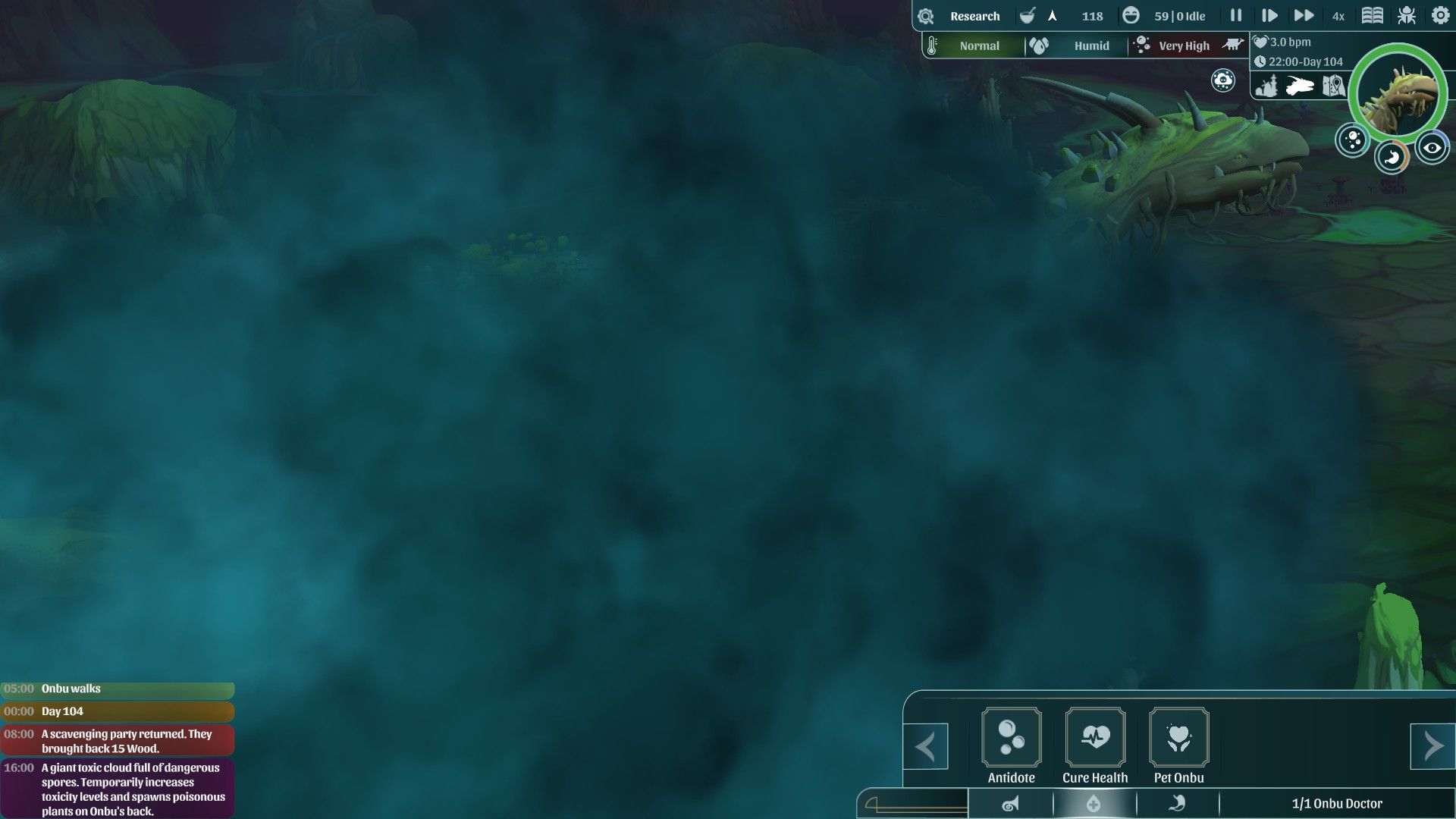Quick Links
Unlike other city builders, The Wandering Village has you growing a settlement on the back of an Onbu, a massive turtle-like creature, as it travels through a diseased world. Surviving takes teamwork between your people and Onbu and keeping that balancing act going over the long journey is something that you need to become very good at if you want to stay alive.
You'll need to be prepared for whatever hazards might be waiting over the horizon while keeping an ever-expanding list of demands fulfilled as your village grows. A challenging task that these beginners tips can help prepare you for.
The Wandering Village is currently in Early Access on Steam, and the content is subject to change. We will update these articles as required.
Make Onbu Trust You
You're not just along for a ride on Onbu's back. Your village exists in a symbiotic relationship with this gentle giant, and you get to influence what it does.
After building a Hornblower, you can begin issuing commands to it, such as which turn to take at a crossroads or when to run.
The only catch is that Onbu doesn't have to listen to you; if Onbu doesn't trust you, it can disregard your instructions.
It may seem like a small inconvenience until Onbu decides to lumber through a desert when you have already depleted your water supplies or sleep in the middle of a toxin cloud. It doesn't always recognize the best course of action, and building that trust will be vital for your survival.
Hurting it might seem unthinkable, especially at the start, but it will quickly become a necessary evil. Breaking Onbu's trust by harvesting its horns might seem like a small infraction in exchange for valuable stone.
Later, you might begin draining its bile to fend off an infestation or cooking its blood to survive a famine at its expense.
Keep An Eye On The Horizon
Your ability to see around your village is crucial to your survival. You can see what sort of biome is coming out next, what hazards lie in front of you, and even if there are any nomads to recruit along the way.
Knowing what's coming up lets you plan your crops accordingly or maneuver Onbu to avoid any impending dangers if it listens to you.
Biomes each have their challenges and opportunities to be aware of:
|
Jungle Biome |
Jungles let you grow most crops and quickly accumulate water. However, it is the most toxic biome with frequent pollen storms and high ground toxicity. |
|---|---|
|
Mountain Biome |
The mountains are cold and sometimes freezing. Only a few crops can grow here, and it has plenty of iron ore and settlements. |
|
Desert Biome |
Deserts are hot and sometimes torrid, making it difficult for most crops to grow. Worse, it's impossible for Air Wells to produce water, making it a scarce resource. It does come with the advantage of being the least toxic biome. |
Staying in one biome for extended periods will be detrimental in the long term. Getting Onbu to head in the right direction will save you plenty of pain.
Use Scavengers As Often As Possible
Looking out into the world will quickly reveal resources that you will need to build a Scavenger Hut to collect. The resources on Onbu's back are either finite or can be gathered at the cost of trust, meaning that you will eventually need to rely on scavengers to meet your resource needs.
Scavengers are also the only way for you to gather resources like Sand and Iron Ore which are needed to construct the game's more advanced buildings.
It takes time for them to complete their expeditions based on the distance of the objective from Onbu. It's worth ensuring that they're always out somewhere to maximize how much they can accumulate.
You can also build more Scavenger Huts to send out simultaneous expeditions.
Scavenge Shrines Early On
Shrines are the only place you can gather Knowledge, the currency needed to research later-game technologies. Though it may be tempting to gather some stone or wood instead of Knowledge, many technologies provide long-term benefits for resource gathering.
For example, Sawmills and Quarries let you gather large amounts of stone and wood early on for only a minimal Knowledge investment.
Neglecting research can leave you in a position where you aren't equipped for crises later.
For example, you must research Decontaminators and Onbu Doctors to survive highly polluted environments.
Process Food
Cooking food at Kitchens and Bakeries is essential for keeping your village fed and happy. One of the metrics your villagers' happiness is affected by later in the game is Food Quality which you need processed food to fulfill.
Some processed food yields more meals than the raw food needed to cook them, meaning you can stretch your food supplies out further by cooking.
Wheat offers the best returns as each unit of wheat makes two bread.
This is offset by needing to construct windmills and bakeries to process the grain into something your villagers can eat. The resource and manpower investment needed to get the most out of wheat is much higher than cooking other crops in a kitchen.
Build Several Dung Collectors
Onbu is so vital to your survival that everything about it is worth harvesting. Especially its dung. It's refined in a Compost Heap into Biogas or Compost. Decontaminators use the former to incinerate toxic plants on Onbu's back, and farms use the latter as fertilizer to grow food more efficiently.
It's unlikely that you'll ever collect enough of Onbu's dung, and Decontamiators literally burn through it at an alarming pace, while farms will always have an appetite for more compost.
How To Alleviate A Drought Of Onbu Dung
- This can be relieved slightly by building multiple Dung Collectors near the appropriate spot on the rear of Onbu's back.
- Each Dung Collector will gather the same amount each time Onbu relieves itself.
- Building more collectors will let you gather more dung overall.
- Onbu can be fed Laxatives to produce more dung, should you find your supplies going down the drain.
Be Prepared For Toxic Clouds
Even a small exposure to toxic environments can quickly spiral out of control if left unchecked. Your villagers will become poisoned if exposed to too much toxic air, and plants may spread the taint across Onbu's back.
Even Onbu will slowly become poisoned if left alone for too long. Depending on the patient, you will need to grow Herbs to treat poisoning and administer it through Doctors or Onbu Doctors.
You can quickly find yourself running out of Herbs once an infestation spreads. Helping Onbu isn't cheap either, and it's always wise to ensure that you have a sizable stockpile of Herbs at any given time.
If you end up in highly polluted environments for extended periods of time, villagers can get infected again and need to be fed more herbs.
The same can be said for Decontaminators. They will use fuel incredibly quickly once infested plants begin to spread. If there aren't enough of them, they may be unable to stop the infection from spreading to your farms and infrastructure.
They will need large reserves of Biogas or Bile to deal with the situation. Bile can be used in a pinch and gathered much faster than processing Biogas, though it comes at the cost of Onbu's trust and health.

